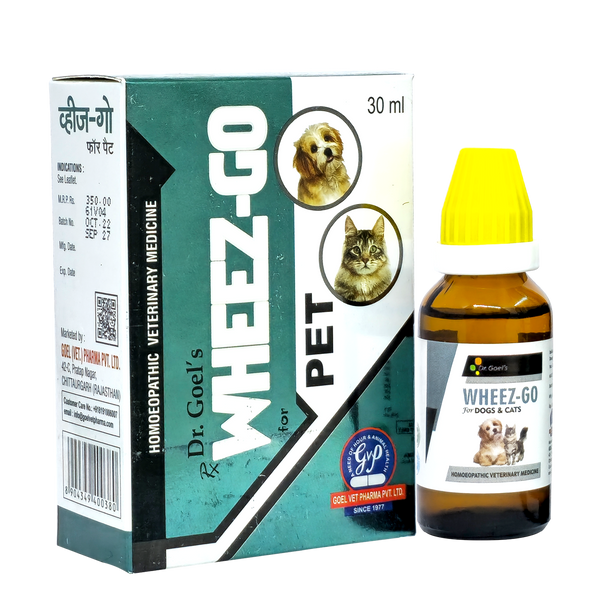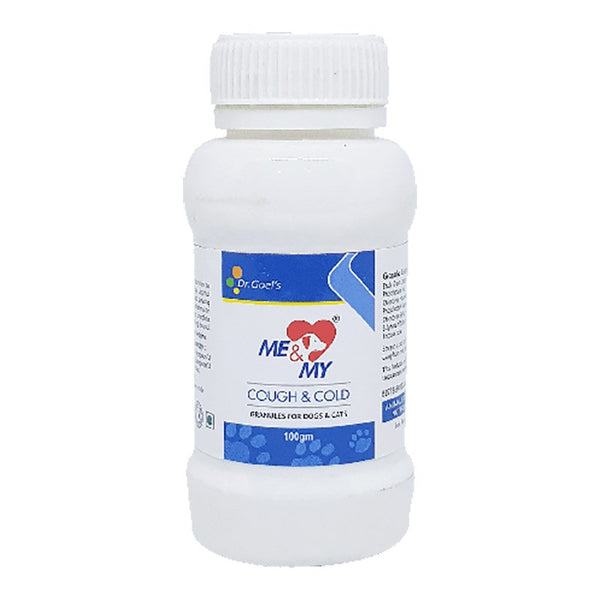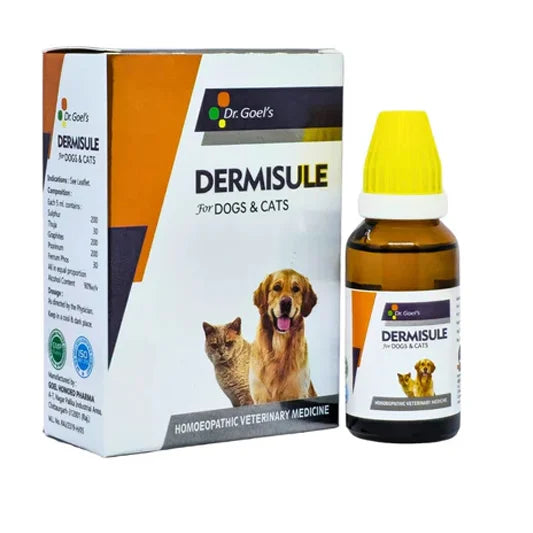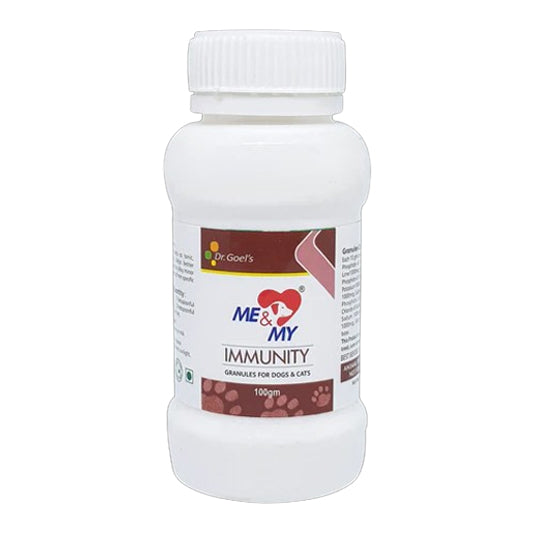
A Battle Against Coughing Clouds – Homeopathy For Pets
We’ve all been there, where we forget what we were doing to focus on the sneeze which is on its way out! Coughing and sneezing are very natural mechanisms to get the irritant out of our respiratory system. In fact, our dear pets too face the coughing and sneezing dilemma! The occasional cough in an otherwise healthy dog is usually nothing serious. But just like us, when a dog’s coughing becomes a constant or recurrent problem it can be a sign of serious illness.
But what exactly happens during coughing? What is happening? Why is my pet coughing? If you have such questions, read more below about Coughing:
WHAT IS COUGHING?
A cough, also medically termed as ‘tussis’, is a voluntary or involuntary act that clears the throat and respiratory or the breathing passage of foreign agents such as microbes, pollutants, irritants, fluids, and mucus.
It is a rapid expulsion of air from the lungs, as a reflex action or deliberate action.
WHY IS MY PET COUGHING?
There are many reasons for the coughing mechanism
Let’s classify them for the sake of easy understanding broadly into –
Extra- Respiratory Causes and Respiratory Causes
Let’s begin by discovering the extra-respiratory causes
What is mastitis?
Mastitis refers to the inflammation of milk-secreting tissues or simply the mammary gland. Mastitis occurs when white blood cells (leukocytes) are released into the mammary gland, usually in response to bacteria invading the teat canal or occasionally by chemical, mechanical, or thermal trauma on the udder. Milk-secreting tissue and various ducts throughout the mammary gland are damaged due to toxins released by the bacteria resulting in reduced milk yield and quality.
How to identify mastitis?
This disease can be identified by abnormalities in the udder such as swelling, heat, redness, hardness, or pain (if it is clinical). Other indications of mastitis may be abnormalities in milk such as a watery appearance, flakes, or clots. When infected with sub-clinical mastitis, a cow does not show any visible signs of infection or abnormalities in milk or on the udder.
EXTRA RESPIRATORY CAUSES OF COUGH
Extra Respiratory essentially means the causes lie apart from the respiratory system. That is, the cause of coughing is not the lungs but something apart from the respiratory system is causing coughing.
1. THROAT CLEARANCE
Coughing is the main standard method of clearing the throat and trachea. What exactly happens is whenever your pet’s airways become clogged with mucus or foreign particles such as smoke or dust, the body tries to remove it as quickly as possible through coughing. It is a reflex reaction that attempts to clear the particles from the tract to make breathing easier.
Usually, this type of coughing is relatively infrequent, however, coughing might continue to increase if the exposure to irritants such as smoke/dust is not removed at the earliest.
It could be noticed that pets, whose owners are chronic cigarette smokers, can also end up coughing.
2. ASTHMA
One of the causes of coughing could be asthma. Typically, asthmatic coughing involves wheezing, which makes it easy to identify. Dog asthma is an allergic disease. There is some trigger that initiates the ‘Anti-Foreign Body Mechanism’ inside the body. Asthma attacks in dogs are caused by an allergic reaction and often result in airway inflammation. It causes constriction and spasms of the small airways in the lungs. Asthma is usually seen in middle-aged dogs and some young dogs.
However, it’s not a frequent cause of coughing but it’s always better to get your pets diagnosed by a trained veterinarian who will suggest you the line of treatment for the same.
3. MEDICATION
Some medications can cause coughing, although even this is generally a rare side effect. Angiotensin-converting enzyme (ACE) inhibitors [used to treat high blood pressure and heart conditions] can cause coughing.
However, the coughing stops when the medication is discontinued.
4. MISCELLANEOUS CONDITIONS
Other conditions that may cause a cough include:
a) Damage to the vocal cords
b) Postnasal drip
c) Serious and life-threatening conditions such as pulmonary embolism or Congestive heart Failure.
Tip – A persistent cough during the evening or night hours indicates heart problems so it’s best to get your pet diagnosed at the earliest for any doubts about the cause of coughing/wheezing.
Now that we have discovered the non-respiratory causes, let’s now focus on the Respiratory Causes of coughing.
RESPIRATORY CAUSES
Respiratory Causes of coughing basically involve pathogens that cause irritation in the tract as well as disease progression.
Viruses, bacteria, fungi, and parasites can all infect a dog’s upper respiratory tract, lung tissues, airways, or both airways as well as lung tissues thus, causing the dogs to cough.
Sometimes dogs get bronchitis or pneumonia due to these bacteria (eg Mycobacterium), Viruses (eg Influenza Virus) and Fungi (eg Aspergillus). Other causes could be because they have inhaled some allergens such as dirt, grass seeds, or food, which can lead to an infection of the airways. In certain rare cases, lung cancer is the diagnosis. However, Your vet will help you to decide the best possible way out by diagnosing the conditions properly. Other major causes of coughing include Distemper Virus and Kennel cough : [Kennel cough is the common name for a honking type canine cough].
WHAT SIGNS SHOULD I LOOK OUT FOR?
Coughing could be because of the influenza virus causing normal seasonal flu to life-threatening conditions such as CHF or Allergic reaction. It’s best to get your pet diagnosed at the earliest to avoid any future obstacles in the recovery phase.
Keep an eye on –
- The period of coughing. i.e. whether the cough lasts for a few hours or more than a few days, or worsens as time passes by.
- Behavioral Aspects- If your pet is depressed or seems extra tired
- The rise in temperature – Keep an eye on whether they have a fever
- Anorexia – If your pet has developed anorexia i.e they won’t eat.
- Concurrent Health Problems- if your pet has some underlying non-diagnosed health problems it could take a toll on your pet’s health adversely.
HOW TO DIAGNOSE?
The Diagnosis is generally based on the type of cough, its consistency of it and the time period
If the cough lasts only for a few hours and subsides, then it’s an acute cough
If it lasts for more than a few weeks it may be a chronic cough due to some health issues.
Your veterinarian will diagnose your pet on the basis of some tests
1. BLOOD PANEL
Your Vet may suggest a routine blood checkup to rule out or rule in Infections.
A complete blood count test (CBC) gives a clear picture regarding the blood cells and whether there’s an Infection going on in the body
2. X-RAY
X-Ray is an extremely handy diagnostic tool as it can check the lung patterns and even the heart for any lesion which may cause coughing in your pets
3. History
Based on the history of signs and symptoms that your pet may be exhibiting, a good diagnosis can be made. Diagnosis is based partly on history as well! Hence it’s essential that you give the proper and complete history of the signs that your pet exhibits.
Ie. If with coughing you notice any other signs and symptoms and if there are any other concerns, which you may have, they should be promptly expressed to your Vet.
TREATMENT PROTOCOL
Treatment is based on diagnosing, thus diagnosis is key.
If your pet has coughing due to Respiratory causes your Vet may suggest antibiotics, fluids, and other such medicines for your pet.
In cases of other reasons such as allergies, the coughing generally subsides when the causative irritant is removed (like pollen/cigarette or vehicle smoke, etc)
On the other hand, for coughing caused due to heart problems, the treatment protocol is totally different and focuses primarily on resolving the heart disease to subsequently resolve the coughing problem.
Homeopathic Treatment for coughing –
The discomfort of the dog and the helplessness of the pet owners can be addressed with WHEEZ-GO for PET, a Homeopathic Veterinary Medicine to treat Cough & Flu-related symptoms for any reason. WHEEZ-GO for PET, A Unique formulation for respiratory disorders in pets. It is based on homeopathic principles ie. ” Similia similibus curanter” Likes to be treated by likes hence one could easily understand that the following symptoms of different medicine when available in a case can be cured by these medicines.
Dosage: 20 drops three times a day or as directed by the doctor.
Coughing is a normal phenomenon we observe in our day-to-day lives and thus it’s a manageable condition!
However, the root cause should be discovered as quickly as possible to prevent any delays in the recovery period. Thus, along with the conventional treatment as suggested by your vet, WHEEZ GO for pets is a homeopathic drug for coughing due to causes such as influenza or respiratory disorders.
So,
If your dog has a cough due to the flu and is feeling a bit low, check out our amazing product WHEEZ GO!
HOMEOPATHIC SOLUTION FOR COUGH & COLD IN PETS
WHEEZ-GO FOR COUGH AND COLD ISSUES
All Pets will naturally cough from time to time. A persistent cough however can be a symptom of a more serious underlying illness or medical condition. Pets are social creatures that naturally sniff and slurp. This is why bacteria and viruses –including a canine form of the flu — quickly spread from dog to dog. Germs also can land on Doors, furniture, food bowls, toys, and other surfaces where the next dog to come along picks them up. The discomfort of the dog and the helplessness of the pet owners can be addressed with WHEEZ-GO for PET, a Homeopathic Veterinary Medicine to treat Cough & Flu-related symptoms for any reason.
ME & MY COUGH & COLD HOMEOPATHIC SUPPLEMENT
Me & My COUGH & COLD Pet Supplement is very useful for pets that show symptoms of catarrhal cough, cold, headache, sneezing with a running nose, inflammation of the mucous membrane, pain in the chest, and bronchitis with or without rattling sound.
DERMISULE For All Kinds of Skin Issues
DERMISULE for pets is the best remedy for dogs suffering from different skin conditions like eczema, allergies, rashes, lesions with hair loss, redness, dry, scaly, pus, or bloody discharge. Specific or general lesions or spots as in Mange disease can also be improved.
ME & MY IMMUNITY, IMMUNITY BOOSTER SUPPLEMENT
Me & My IMMUNITY Pet Supplement is a unique formula of valuable supplements for Dogs & Cats that help in maintaining and raising the IMMUNITY of your lovable pets. It is made for weak and old pets as it improves immunity, helps better utilization of food, and allay minor ailments or complaints of a non-specific nature. It also gives strength to the body's mechanism for fighting against germs of all kinds.











